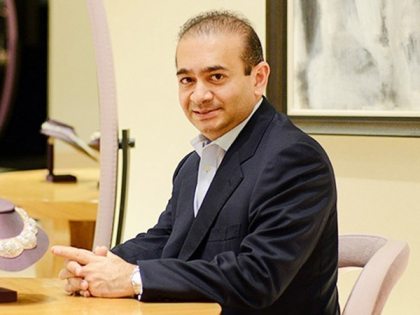What next for Nirav Modi?
By ANI | Published: February 25, 2021 07:55 PM2021-02-25T19:55:22+5:302021-02-25T20:05:02+5:30
A district judge of Westminster Magistrates' Court in London on Thursday said fugitive diamond dealer Nirav Modi can be extradited to India to stand trial in Punjab National Bank (PNB) loan scam, after a nearly two-year-long legal battle.

What next for Nirav Modi?
A district judge of Westminster Magistrates' Court in London on Thursday said fugitive diamond dealer Nirav Modi can be extradited to India to stand trial in Punjab National Bank (PNB) loan scam, after a nearly two-year-long legal battle.
This decision brings the billionaire jeweller an inch closer to the extradition, as he is wanted in the Rs 14,000 crore scam.
A British High Commission spokesperson told , "Nirav Modi faced an extradition hearing at Westminster Magistrates Court following his arrest in relation to an extradition request from India. The judge has decided to send the case to the Home Secretary to decide whether to order his extradition to India."
Following the ruling on his extradition today, Modi is expected to appeal the decision in the High Court.
According to British extradition rules, the Secretary of State must order extradition unless the surrender of a person is prohibited by certain statutory provisions in the 2003 Act. The requested person may make any representations as to why they should not be extradited within four weeks of the case being sent to the Secretary of State. The Secretary of State is not required to consider any representations received after the expiry of the four week period.
According to British laws, extradition is prohibited by statute if: the person could face the death penalty (unless the Secretary of State gets the adequate written assurance that the death penalty will not be imposed or, if imposed, will not be carried out)
There are no special arrangements with the requesting country - 'speciality' requires that the person must be dealt with in the requesting state only for the offences for which they have been extradited (except in certain limited circumstances)
The person has already been extradited to the UK from a third state or transferred from the International Criminal Court and consent for onward extradition is required from that third state or that Court (unless the Secretary of State has received consent)
If none of these prohibitions apply, the Secretary of State must order extradition. Or, if surrender is prohibited, the person must be discharged.
The Secretary of State has to make a decision within two months of the day the case is sent, otherwise, the person may apply to be discharged. However, the Secretary of State can apply to the High Court for an extension of the decision date. More than one extension can be sought if necessary.
Apart from charges relating to defrauding PNB through the use of fraudulent loan agreements to the tune of USD 2 billion, Modi also faces charges of money laundering, destruction of evidence and witness intimidation.
( With inputs from ANI )
Disclaimer: This post has been auto-published from an agency feed without any modifications to the text and has not been reviewed by an editor
Open in app